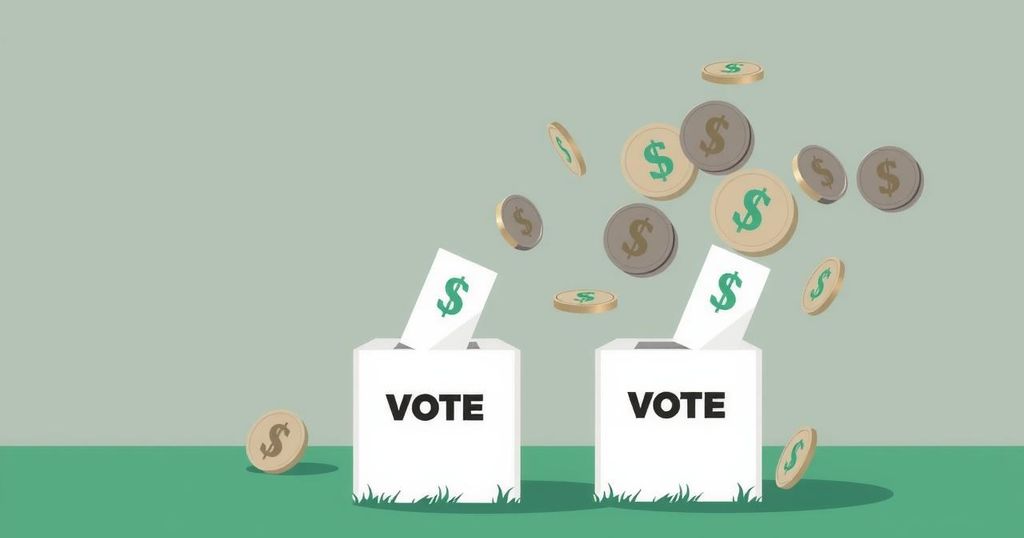The Role of Money in Nigeria’s Democracy Ahead of 2027 Elections
As the 2027 general elections approach in Nigeria, concerns about the role of money in politics intensify. Former Imo State Governor Achike Udenwa has highlighted the detrimental impact of money politics on democratic integrity, asserting that purchasing electoral victories has become common. Despite laws aiming to limit campaign spending, actual costs have soared, and corruption remains rampant, emphasizing the urgent need for electoral reform and regulation.
As Nigeria approaches the 2027 general elections, political maneuvering intensifies. President Bola Tinubu diligently seeks re-election, whereas opposition politicians aim to unite against him. However, despite the ongoing negotiations, the focus on supporting democracy remains alarmingly minimal amid the scramble for power.
Former Imo State Governor Achike Udenwa has warned of the dangerous impact of money politics on democratic integrity. In an appearance on Edmund Obilo’s ‘State Affairs’ podcast, he asserted that wealth now plays a crucial role in securing electoral victories, stating, “If I don’t vote for you, you can buy your way through if you have the right amount of money.”
Udenwa, a seasoned political participant, acknowledged the pervasive corruption detrimental to democratic values in Nigeria. Reported incidents of prepaid inducements to voters before elections highlight this, where tactics like ‘see and buy’ allow electoral purchases through bribery after casting votes.
The judiciary is also implicated, with instances of misconduct observed among legal professionals during party primaries. Mahmood Yakubu, Chairman of the Independent National Electoral Commission, has called for stringent measures against delegate bribery, noting occurrences of foreign currency payments to delegates.
In addition, the steep costs of nomination forms have surged since 1999, with presidential forms rising by 300% from 2015 to 2023. Despite the Electoral Act 2022 capping election expenses at N5 billion for presidential candidates, these figures remain significantly disconnected from actual campaign expenditures.
Although some electoral officials have faced prosecution for corruption, this number remains marginal compared to the extensive electoral malpractices. A Commonwealth Observer Group report on the recent elections highlighted that electoral reforms have insufficiently addressed ongoing concerns within the system.
Drawing on international precedents, such as the Federal Election Campaign Act in the United States, Nigeria’s political parties should consider alternative funding methods like annual membership dues to mitigate money politics. Furthermore, it is crucial for the National Assembly to establish an electoral offences commission to better regulate election campaign financing. Civil society organizations must continue to advocate for meaningful electoral reforms.
In conclusion, the intertwining of money and politics presents a significant threat to the democratic process in Nigeria. With high costs associated with political campaigns and the pervasive influence of financial incentives on voters and delegates, the integrity of elections is at stake. Urgent reforms, including the establishment of an electoral offences commission, are necessary to safeguard democracy and ensure fair electoral practices in the upcoming 2027 elections.
Original Source: punchng.com




Post Comment